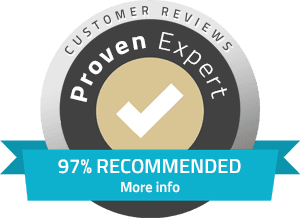Search Engine Optimization (SEO) is a crucial digital marketing strategy for improving your website’s visibility in search engine results pages (SERPs). Here are several suggestions to assist you in your pursuit of better SEO:
Keyword Research: Begin by pinpointing pertinent keywords and phrases that your intended audience is inclined to seek. Tools like Google Keyword Planner, SEMrush, or Ahrefs can help you find keywords with search volume and low competition.
Quality Content: Create high-quality, informative, and engaging content that provides value to your audience. Content Content should be extensively researched, one-of-a-kind, and closely aligned with the keywords you aim to target.
On-Page SEO:
Use your target keywords in the page title, headers, and throughout the content.
Write descriptive and compelling meta descriptions.
Optimize images with descriptive alt tags.
Use clean and SEO-friendly URLs.
Mobile Optimization is crucial: Make sure your site is both mobile-friendly and responsive because Google takes mobile-friendliness into account as a ranking factor.
Page Speed: Fast-loading pages are crucial. Utilize tools such as Google PageSpeed Insights to pinpoint and address any speed-related concerns.
User Experience (UX): Provide a great user experience by making your website easy to navigate, with clear and intuitive menus and organized content.
Backlinks: Establish top-tier backlinks from reputable websites within your industry. Natural and relevant backlinks can significantly boost your site’s authority and ranking.
Internal Linking: Create a logical internal linking structure to help search engines understand the hierarchy and relationships between your content.
HTTPS: Safeguard your website by obtaining an SSL certificate to offer a secure browsing experience. Google prioritizes secure websites in its rankings.
Social Signals: While not a direct ranking factor, social media signals (shares, likes, comments) can indirectly impact your SEO by increasing visibility and driving traffic.
Optimize for Featured Snippets: Structured data, bullet points, and concise answers can increase the chances of your content being featured as a snippet at the top of SERPs.
Local SEO: If you have a physical location or serve specific geographic areas, optimize for local search by creating and optimizing your Google My Business profile and obtaining reviews.
Consistently Refresh Content: Ensure your content remains current and regularly refreshed. Search engines give preference to websites that consistently update their content.
Track and Analyze: Employ tools such as Google Analytics and Google Search Console to oversee your website’s performance, monitor keyword trends, and pinpoint opportunities for enhancement.
Competitor Analysis: Study your competitors’ websites to understand their strategies and identify opportunities to outperform them.
Avoid Black Hat SEO: Stay away from unethical practices like keyword stuffing, cloaking, or buying low-quality backlinks. These can lead to penalties from search engines.
Mobile-First Indexing: Google primarily uses the mobile version of your site for ranking and indexing, so ensure your mobile site is as optimized as your desktop version.
Voice Search Optimization: As voice search becomes more prevalent, focus on natural language and long-tail keywords in your content.
Structured Data Markup: Implement structured data (schema markup) to provide search engines with additional context about your content, increasing the chances of rich snippets in search results.
Patience and Persistence: SEO is a long-term strategy. It takes time to see significant results, so be patient and consistently work on improving your website’s SEO.
Our Services
SEO Service in Ranipet | Logo Design Service in Ranipet | Digital Marketing Training in Ranipet | Graphic Deign Service in Ranipet | Digital Marketing service in Ranipet | Website Development Service in Ranipet | SEO Service in Vellore | Logo Design Service in Vellore | Digital Marketing Training in Vellore | Graphic Deign Service in Vellore | Digital Marketing service in Vellore | Website Development Service in Vellore



